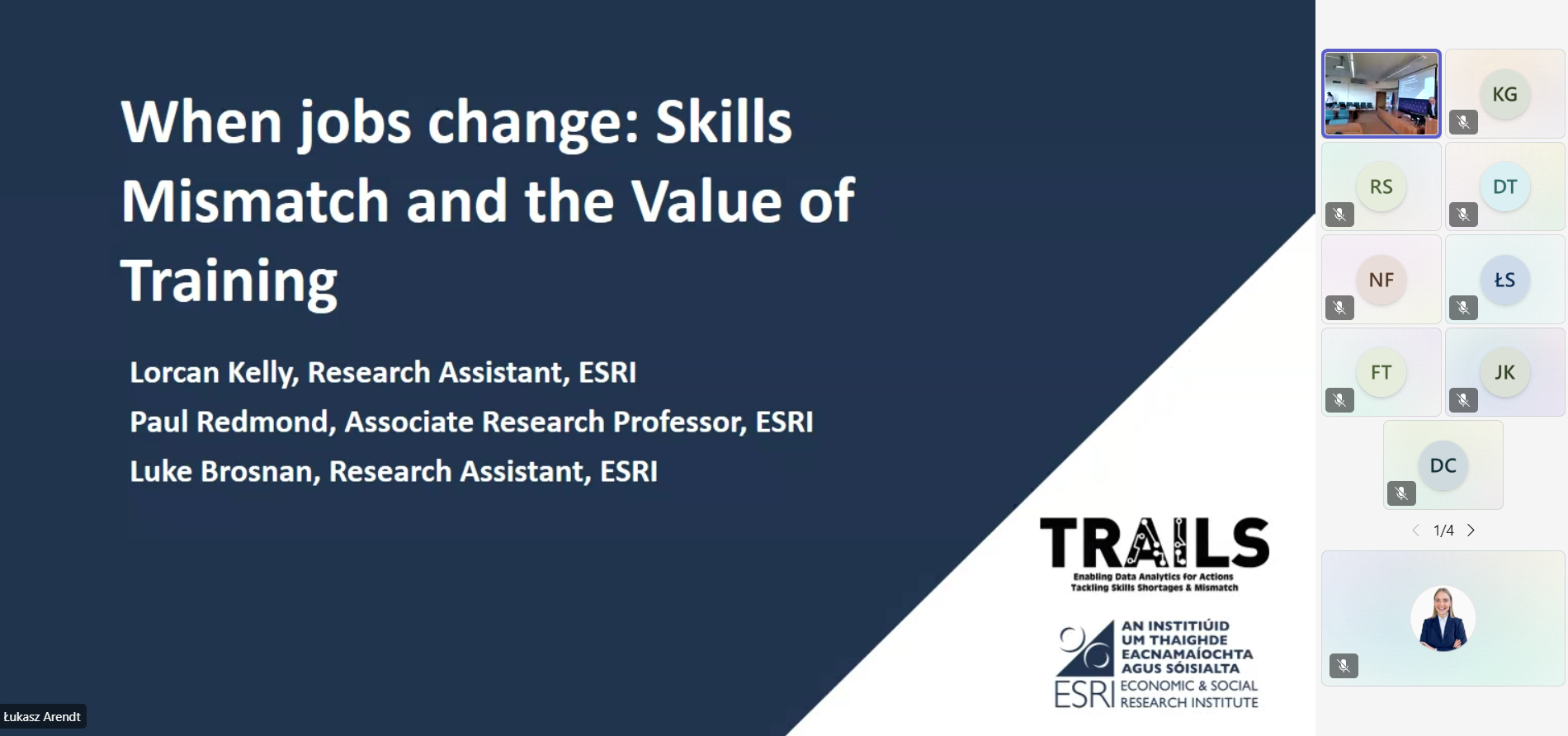05/06/2025

On June 4th, 2025, TRAILS participated in the SkillsPULSE hybrid seminar hosted by the University of Lodz’s Faculty of Economics and Sociology, in partnership with the Committee for Labour and Social Policy of the Polish Academy of Science. The event brought together researchers, policymakers, and labour market practitioners from across Europe to discuss the use of online job vacancies and big data in identifying skill gaps and mismatches.
The seminar was part of a collaborative effort among four Horizon Europe projects — SkillsPULSE, SkiLMeeT, SKILLAB, and TRAILS — aimed at developing innovative tools to inform skills and employment policies across the EU. The gathering also offered an opportunity to engage Polish stakeholders in dialogue around emerging findings and methodologies.
TRAILS was represented by Luke Brosnan (Economic and Social Research Institute), who presented new findings on behalf of the ESRI research team, including Paul Redmond and Lorcan Kelly. Their presentation, “When Jobs Change: Skills Mismatch and the Value of Training”, explored how evolving job demands — driven by digitalisation, remote work, and AI — are affecting workers’ perceived skill adequacy.
The TRAILS team combined data from over 50 million EU and Norwegian job postings (via Lightcast™) with results from the European Skills and Jobs Survey (ESJS) to assess the degree of skill change and mismatch across occupations. Findings showed that as job requirements shift, workers in growing occupations increasingly report feeling under-skilled, while those in declining roles often report being over-skilled.
Importantly, the research highlighted the positive impact of targeted training. Interactive formats such as workshops and seminars were shown to significantly reduce the risk of mismatch, underlining the importance of training that is responsive to changing labour market needs.
Through this work, TRAILS continues to develop granular measures of occupational skill change, supporting evidence-based labour market policies at national and EU levels.
In addition to TRAILS, the seminar featured presentations from fellow Horizon Europe projects:
The event concluded with a panel discussion involving Polish labour market stakeholders, including representatives from labour offices, trade unions, and employer organisations. Feedback focused on how skills intelligence tools can better serve national policy contexts and local labour needs.
TRAILS remains actively engaged in this European dialogue, contributing data-driven insights to address labour market transformation. As skill demands continue to evolve — particularly in digital, green, and interpersonal domains — TRAILS is committed to supporting inclusive, forward-looking policymaking through high-quality research and collaboration.